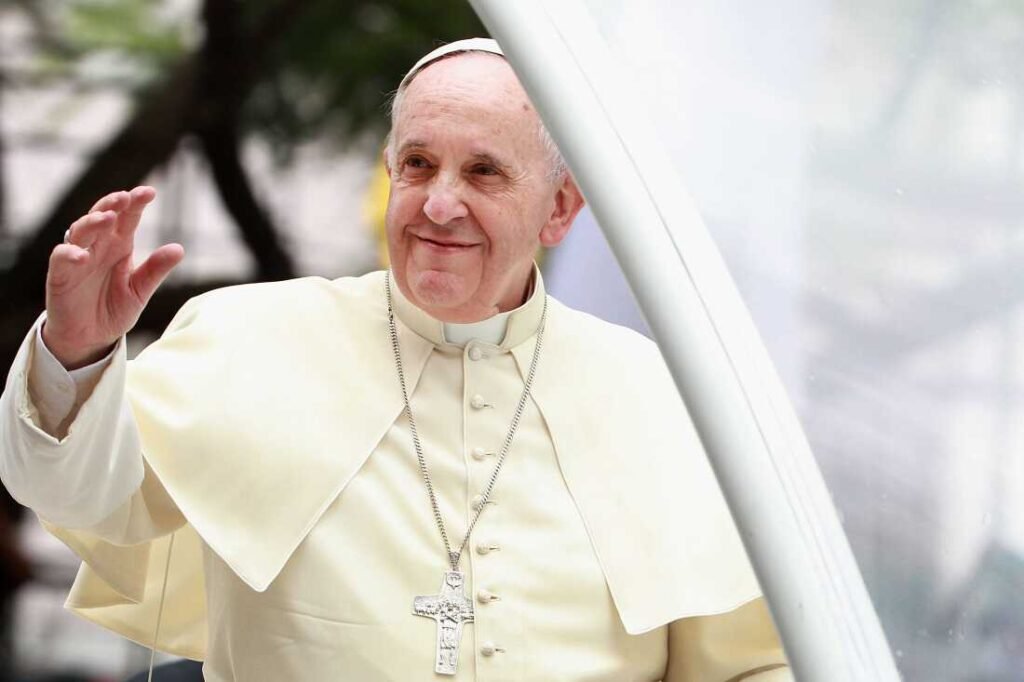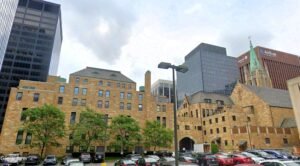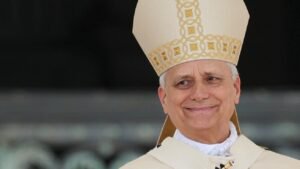The Legacy of Pope Francis: Reflecting on His Passing

Introduction to Pope Francis and His Impact
Pope Francis, born Jorge Mario Bergoglio in Buenos Aires, Argentina, was elected as the 266th pope of the Roman Catholic Church on March 13, 2013. His ascension to the papacy marked a significant moment in the Church’s history, as he became the first pope from the Americas and the Southern Hemisphere. This unprecedented move signaled a shift towards a more inclusive and globally representative leadership within the Church, underscoring his commitment to addressing contemporary issues that resonate with diverse populations around the world.
Throughout his papacy, Pope Francis emphasized themes of mercy, compassion, and social justice, which became cornerstones of his leadership style. He sought to bridge the gap between the Vatican and the faithful, notably through his accessible demeanour and candid communication style. His encyclicals, particularly “Laudato Si’,” focused on climate change, the importance of caring for the environment, and the responsibilities of humanity in the face of ecological crises. This highlighted his push for global awareness and action on pressing issues that affect vulnerable populations disproportionately.
Moreover, Pope Francis worked tirelessly to address issues such as poverty, inequality, and the refugee crisis, advocating for a Church that actively engages with societal challenges. His efforts to reform the Vatican’s financial practices and address clerical sexual abuse also reflected a nuanced understanding of the Church’s role in upholding ethical standards and restoring trust among its congregation. Through interfaith dialogue and efforts to foster understanding among different religious communities, he positioned the Catholic Church as a voice for unity and peace in an increasingly polarized world.
In examining the lasting impact of Pope Francis, it is crucial to understand how his unprecedented approach to leadership has not only reshaped the Catholic Church but has also resonated deeply with the broader global community, leaving a rich and multifaceted legacy.
Early Life and Path to the Papacy
Jorge Mario Bergoglio, later known as Pope Francis, was born on December 17, 1936, in Buenos Aires, Argentina. The son of Italian immigrants, his upbringing in a modest household greatly influenced his worldview and pastoral approach. Growing up in a diverse urban environment, he experienced the cultural and social dynamics that would later inform his emphasis on social justice and community engagement within his papal ministry.
Bergoglio pursued higher education at the Colegio de la Inmaculada Concepción, where he developed a strong interest in philosophy and theology. His academic journey continued at the University of Buenos Aires, where he studied chemistry before ultimately deciding to enter the Jesuit order in 1958. His formation as a Jesuit was pivotal, as it instilled in him a deep commitment to social justice, intellectual rigor, and spirituality, all of which would play critical roles in his later ecclesiastical leadership.
During his time as a Jesuit, Bergoglio held various roles, including teacher and spiritual director, eventually being ordained as a priest in 1969. His early career was marked by his dedication to pastoral work in marginalized communities. In 1992, he was appointed Auxiliary Bishop of Buenos Aires, and just a few years later, he ascended to the role of Archbishop. His tenure was characterized by a focus on inclusivity and reform within the Church, as he actively engaged with the poor and advocated for those who were often neglected by society.
Bergoglio’s journey to the papacy culminated on March 13, 2013, when he was elected as the 266th Pope of the Roman Catholic Church. His selection marked the first time a Jesuit and a Latin American became Pope, highlighting his unique background and experiences that shaped his vision for a more inclusive and compassionate Church. His pastoral style, rooted in humility and dialogue, was largely influenced by his life experiences in Argentina and within the Jesuit community.
Key Themes of Pope Francis’ Papacy
Pope Francis, during his tenure, emphasized various profound themes that resonated deeply within the global community. One of the most significant aspects of his papacy was his unwavering commitment to social justice. He consistently advocated for the rights of the underprivileged, speaking out against systemic inequalities and urging society to embrace the marginalized. Through his poignant speeches and actions, he encapsulated the importance of compassion, encouraging individuals and nations to act with empathy toward those who face injustice.
Another pivotal theme was environmental stewardship. Pope Francis recognized the urgent need to address climate change and environmental degradation. His encyclical, “Laudato Si’,” called for a collective responsibility to care for our planet, highlighting the interconnectedness of all creation. By stressing the moral imperative to protect the environment, he inspired a movement that transcended religious boundaries, urging people everywhere to prioritize ecological concerns. This focus on safeguarding the Earth reflects a critical element of his legacy, one that champions the sustainability of future generations.
Interfaith dialogue emerged as a cornerstone of Pope Francis’ approach to humanity. He tirelessly fostered discussions among different faiths, promoting understanding and respect among diverse religious communities. By emphasizing common values and shared beliefs, he hoped to bridge divides and build lasting peace. His genuine efforts toward dialogue not only advanced interreligious relationships but also planted seeds of hope for collaborative problem-solving in a world often plagued by division.
In summary, key themes of Pope Francis’ papacy encompass social justice, environmental stewardship, and interfaith dialogue, reflecting his commitment to uplifting the marginalized and advocating for a more just and sustainable world. His legacy remains a guiding light in today’s ongoing discourse on these crucial issues.
Pope Francis and Global Issues
Pope Francis has been a pivotal figure in addressing some of the most pressing global issues of our time, including climate change, poverty, migration, and peace-building. His papacy marked a significant shift in the Catholic Church’s engagement with these challenges, as he consistently advocated for action and reform on both social and environmental fronts. One of the landmark documents from his papacy, the encyclical “Laudato Si’,” published in 2015, highlighted the moral imperative for all humanity to care for the planet. In this encyclical, Pope Francis called for urgent measures to combat climate change, stressing that environmental degradation disproportionately affects the world’s impoverished communities.
In addressing poverty, Pope Francis emphasized the need for a preferential option for the poor, urging governments and institutions to prioritize the needs of marginalized populations. He consistently called for comprehensive policies to alleviate poverty, tackle inequality, and promote social justice. His engagement with various international organizations demonstrated a commitment to collaborative efforts in eradicating hunger and enhancing human dignity.
Migration emerged as another significant issue during his tenure. In 2016, during his trip to the Greek island of Lesbos, Pope Francis made a powerful statement by welcoming refugees and publicly addressing the need for compassionate responses to global migration crises. His actions encouraged countries to adopt humane policies and foster a spirit of solidarity and acceptance towards migrants.
Furthermore, Pope Francis has been a strong advocate for peace-building across the globe. He facilitated dialogue and reconciliation efforts in conflict-ridden areas, often bringing together leaders from different faiths to foster mutual understanding. By emphasizing the importance of dialogue and coexistence, he underscored that the Church could play a critical role in addressing contemporary conflicts.
Personal Encounters and Charisma
Pope Francis, known for his approachable demeanor and genuine warmth, has left an indelible mark on the hearts of countless individuals through personal encounters that showcase his unique charisma. From the very beginning of his papacy, he demonstrated an impressive ability to connect with people from all walks of life, embodying a pastoral approach that emphasized empathy and understanding. This transformational style has not only reshaped the image of the papacy but has also fostered a deeper bond between the Church and its followers.
One memorable account that illustrates his personable nature involves a visit to a children’s hospital. During this visit, the Pope took the time to interact with young patients, offering comfort and encouragement. He listened intently to their stories, shared laughter, and even led them in prayer, which left a lasting impression on both the children and their families. Such anecdotes are a testament to Pope Francis’ commitment to embodying compassion in his role as leader of the Catholic Church.
Moreover, his charisma was evident during public events, where he often reached out to the crowd, extending his hand to shake, embrace, or even bless individuals. His willingness to step off the pedestal traditionally associated with the papacy made him relatable, and many were able to see him as a fellow human rather than just a religious figure. This approach was particularly meaningful for people facing struggles, as it made the Church feel more accessible and welcoming.
The stories of Pope Francis’ personal interactions serve as a powerful reminder of the importance of connection and empathy in leadership. By focusing on the individual, he inspired many to look beyond their differences and seek understanding in an increasingly polarized world. His legacy is not merely in the policies he enacted but in the deep, human connections he fostered among the faithful and beyond.
Controversies and Challenges Faced
Pope Francis’s papacy, while marked by significant efforts toward reform and inclusivity, was also characterized by a number of controversies and challenges that tested his leadership and faith. One of the most significant issues he faced arose from his progressive approaches to traditional Catholic teachings. Critics, particularly from within the Church, expressed concerns regarding his stances on matters such as divorce, same-sex relationships, and the role of women in the Church. Traditionalists viewed his progressive rhetoric as a departure from longstanding dogmas, raising questions about the future of doctrine under his leadership.
In addition to doctrinal disputes, Pope Francis faced immense scrutiny concerning clerical abuse cases. His commitment to addressing this critical issue has been unwavering; however, critics argue that his pace of reform and the measures implemented were insufficient to address the scale of the crisis. While he publicly acknowledged the pain and suffering inflicted upon victims, the handling of specific cases often drew ire, with allegations that some instances were inadequately addressed, which fueled skepticism regarding his commitment to transparency and accountability.
Moreover, Pope Francis navigated a complex global landscape marked by political and social opposition. His commentaries on climate change, migration, and economic inequality, which reflect his emphasis on social justice, sparked backlash from various political factions. Some perceived his positions as overly political or inconsistent with Catholic teachings. Addressing political leaders and contentious international issues posed challenges that forced him to reconcile his pastoral responsibilities with a firm stance on social ethics.
Despite these controversies, Pope Francis remained dedicated to fostering dialogue and understanding, embodying a leadership style that aimed to bridge divides. Each trial he confronted not only shaped his papacy but also laid the groundwork for the ongoing discourse within the Church, inviting ongoing reflection on its teachings and relevance in the modern world.
Pope Francis’ Vision for the Future of the Church
Pope Francis has consistently articulated a forward-looking vision for the Catholic Church, emphasizing the need for reform, inclusivity, and engagement with younger generations. His papacy has been marked by a call to adapt to modern realities while remaining anchored in the core tenets of Christianity. One of his primary objectives has been to make the Church more relevant to contemporary societal challenges, advocating for reforms that address longstanding issues within the institution.
A significant aspect of Pope Francis’ vision involves fostering a more inclusive Church, which values diverse voices and experiences. He has urged clergy and laypeople alike to dismantle barriers that hinder participation from marginalized groups. By encouraging dialogue and welcoming differing perspectives, he aimed to cultivate a Church that reflects the universal nature of its mission. His encyclicals, particularly “Fratelli Tutti,” underline the importance of fraternity and community, promoting a spirit of togetherness that transcends social and cultural divides.
Engagement with younger generations has also been a cornerstone of Pope Francis’ vision. Recognizing that the future of the Church hinges on its ability to connect with the youth, he has emphasized the need to address their concerns and aspirations. Through initiatives such as Synods on Youth, he has sought to involve young people in discussions regarding the Church’s direction, encouraging them to voice their perspectives and take active roles in community life. This approach not only strengthens the intergenerational dialogue but also ensures that the Church evolves in a way that resonates with those who will shape its future.
Overall, Pope Francis’ vision for the Church highlights the importance of reform, inclusivity, and engagement. As the Church navigates the complexities of the modern world, his leadership invites all believers to contribute to a more vibrant and compassionate ecclesial community, fostering a legacy of hope and renewal for generations to come.
Tributes and Reactions to His Passing
The announcement of Pope Francis’ passing elicited a profound response from communities around the globe, encapsulating a mix of sorrow, gratitude, and reflection on his legacy. Leaders from various nations, regardless of their political standing, expressed deep condolences, acknowledging his efforts in promoting peace and unity. Notably, world leaders commended his dedication to social justice, environmental protection, and interfaith dialogue, which resonated well beyond the confines of the Catholic Church.
The reaction within the Catholic community was particularly poignant. Many bishops and clergy members took to social media and traditional platforms to share their heartfelt tributes. They recounted personal encounters with Pope Francis, describing him as a compassionate and humble leader. Many highlighted his ability to connect with people from all walks of life, emphasizing that he often communicated messages of hope during difficult times, providing comfort to the faithful and non-believers alike.
In addition to the official statements, personal tributes flooded in from everyday individuals who had been touched by his teachings and actions. From those inspired to volunteer and advocate for the marginalized to others who found solace in his words during moments of personal crisis, the impact of Pope Francis on people’s lives was evident. His approach to addressing global issues—such as poverty, migration, and climate change—transcended denominational boundaries and sparked conversations among diverse communities.
Furthermore, interfaith leaders praised Pope Francis for his efforts to foster understanding and reconciliation among different religious beliefs. This was particularly highlighted during his numerous visits to various countries and his embrace of leaders from different faith traditions. The overall sentiment expressed across the world illustrates the vast and enduring influence Pope Francis had during his papacy, reinforcing his legacy as a transformative figure in contemporary history.
The Lasting Legacy of Pope Francis
The papacy of Pope Francis, characterized by a commitment to compassion, dialogue, and reform, is poised to leave a profound and enduring legacy within the Catholic Church and the broader global society. His leadership style, rooted in humility and an unprecedented focus on the marginalized, serves as a touchstone for the future direction of the Church. One of the most notable aspects of his legacy is his unwavering advocacy for social justice and the protection of the environment, which resonate deeply with contemporary global issues. Pope Francis’s encyclical, “Laudato Si’,” delineates the moral imperatives of environmental stewardship and challenges individuals, communities, and governments to consider their roles in combating climate change.
Moreover, Pope Francis has been a staunch proponent of interfaith dialogue, striving to bridge gaps between different cultures and beliefs. His actions, including historic meetings with religious leaders from various faiths, have fostered a spirit of collegiality and mutual respect that could guide future initiatives for peace and unity. The emphasis he places on inclusivity—particularly regarding LGBTQ+ individuals, women, and those affected by poverty—has opened doors for discussions that were once deemed taboo. How the Church navigates these conversations moving forward will shape its relevance in an increasingly pluralistic world.
As history reflects upon his papacy, Pope Francis will undoubtedly be remembered as a transformative figure who set a new standard for leadership through empathy and a commitment to addressing pressing societal issues. The principles he upheld—love, forgiveness, and mercy—encourage future generations to embody these values in their own lives and communities. Ultimately, the legacy of Pope Francis invites us to reflect on our personal contributions towards creating a more just and inclusive society, which will remain pertinent long after his passing.











Leave a Reply
You must be logged in to post a comment.